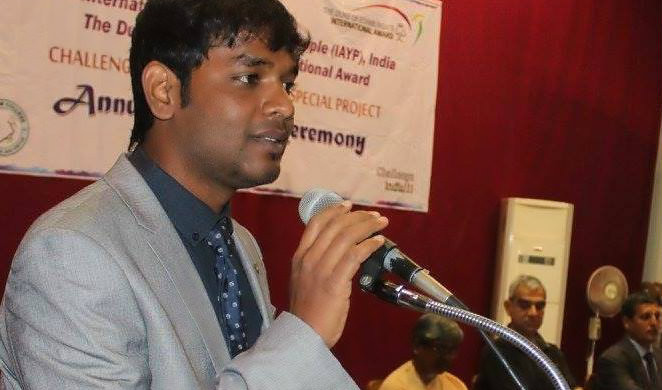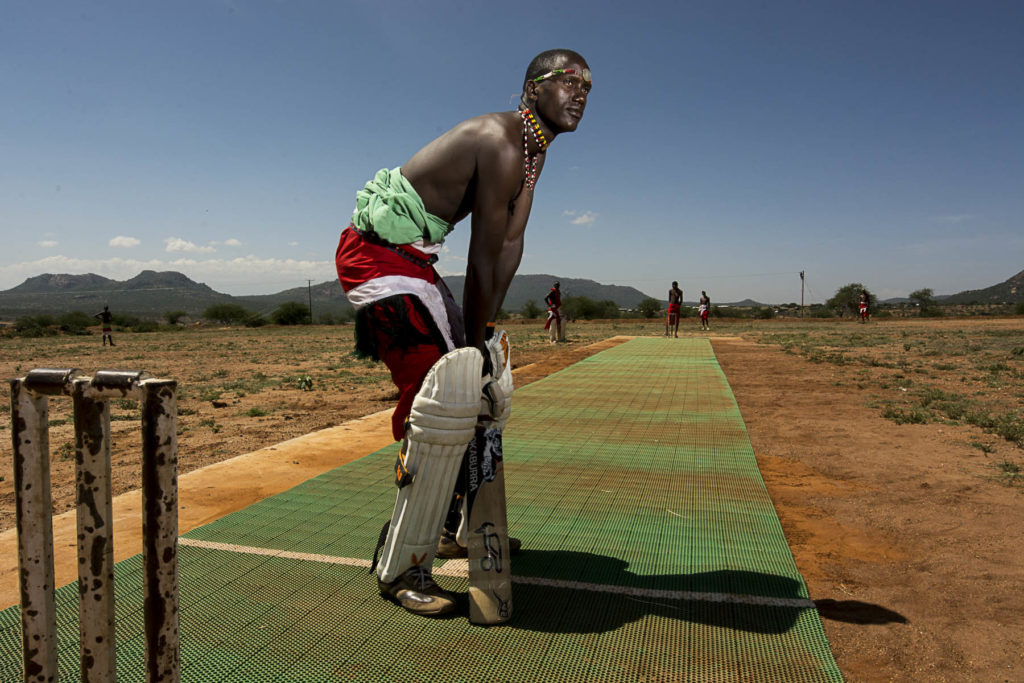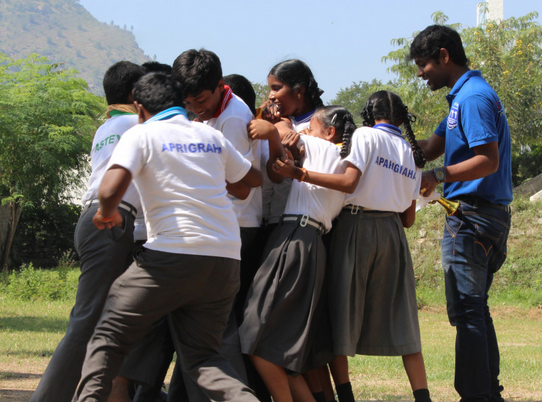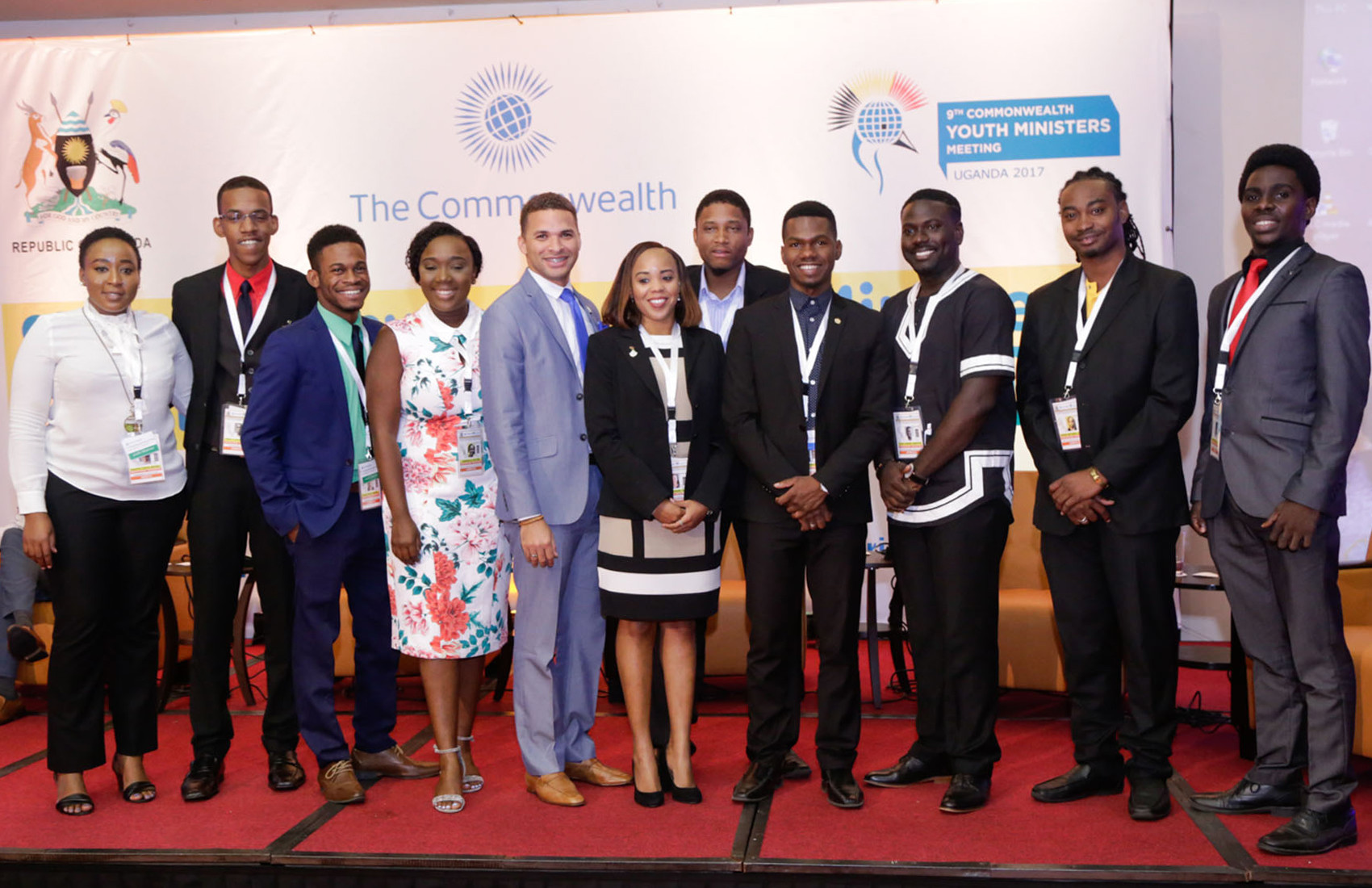
Dinesh Gajendran believes in the contribution of sport to transforming communities. Having grown up on a farm in India, he founded the Audacious Dreams Foundation, a grassroots, youth-led/-focused organisation. It uses sport for development and peace programmes to empower rural youth in India. Around 20,000 young Indians benefit from this foundation each year. So he and it fit naturally into the Commonwealth Youth Sport for Development and Peace (CYSDP) Network.
Dinesh served as the Asia Regional Representative of our CYSDP Working Group until August 2016. He had worked with the group since 2014. During 2015-2017, the CYSDP grew tremendously, adding new team members from across the multicultural Commonwealth. In 2016, yourcommonwealth.org interviewed Dinesh. To give you an insight into his life and work, we have reproduced the interview here.
Tell us about yourself and the work that you do.
“I play a diversified role as a youth activist, social entrepreneur, social worker, policy-maker and educator. I have been engaged with various organisations, including the Duke of Edinburgh’s International Award Association, where I worked in the Asia-Pacific region on training, communication & research programmes. My efforts led to my participation in the UN High-Level Meeting on Youth, Commonwealth Asia Youth Ministers Meeting, the UNESCAP Commonwealth Sports Ministers Meeting, and other major conferences.
“I am the proud recipient of the Bharat Ratna Rajiv Gandhi Yuva Shakthi Award, as well as the Karmaveer Chakra International Award for Young People. My interest in global and sustainable development issues led to my involvement in the South Asian Youth Conference, the Global Citizens Youth Assembly, and other regional and global initiatives. I am the founder of various Youth Forums in Sri Lanka, Mauritius, the UK and China, and in 2014, I was shortlisted for the prestigious “Youth Courageous Award” by the UN Special Envoy of Global Education. Further to that, I was appointed as Global Youth Ambassador for A World at School by Gordon Brown to promote universal education.”
What do you consider to be your biggest accomplishment in the SDP sector?
“I started as a sportsman and coach in India in the indigenous game, Kho-Kho, [and] then became a grassroots SDP activist. I am most proud of establishing the Audacious Dreams Foundation, which uses sports as a tool to empower young people in rural India. I also founded a UNICEF Sport for Development initiative, Challenge India – Empowering Young People with Sports and Experiential Learning, which aims to promote higher quality education, reduce school drop-outs, and improve gender equality using themes of civic citizenship, and global understanding. I have also had the pleasure of participating in the Beyond Sports Summit and Awards.”
“As I come from a grassroots background, CYSDP has given me the opportunity to contribute at a high level, influencing policies which affect the SDP sector and meeting with decision-makers, ministers of government, and key stakeholders. I participated in CYSDP’s 2014 Annual General Meeting, which created an outcome document that was endorsed by Commonwealth Sports Ministers. I also contributed to the Commonwealth Sport and Post-2015 Forum, and the Commonwealth Sports Breakfast 2016 with Heads of Governments.”
More progress with SDP in 2015-2017
Our Sport for Development and Peace (SDP) programme gained increased recognition in global conversations. Two main causes of this were the Sustainable Development Goal (SDG) preamble of the “growing contribution of sport to the realisation of development and peace” and the increased use of sport as an intentional tool to contribute to non-sport outcomes.
The United Nations Educational, Scientific and Cultural Organization’s (UNESCO’s) Permanent Consultative Council of the Intergovernmental Committee for Physical Education and Sport invited the Secretariat to join it. This followed recognition of our publication Enhancing the Contribution of Sport to Sustainable Development, one of a number of publications and analysis activities.
We gave technical support to four countries in their implementation of SDP. One, Sierra Leone, saw progress in the development of an action plan for their national SDP strategy and funding allocated to SDP in their 2016 budget for the first time.
With the leadership of the Commonwealth Secretariat, a set of a limited number of SDGs was determined to which sport can make a significant contribution – Sixth International Conference of Ministers and Senior Officials Responsible for Physical Education and Sport

In the dusty plains of Doldol, Kenya, Maasai warriors have learnt the game of cricket. They now travel the world playing in their traditional regalia. They use the sport to promote community and as a platform to raise awareness of social issues in their community. It helps the growth of a more inclusive, knowledgeable Commonwealth. This photo was the 2016 Commonwealth Photography Competition Africa region winner. It was taken by Commonwealth Photographer of the Year, Amunga Esuchi (Kenya)
In 2016/17, we assisted the Mauritius Government in developing and implementing its Sports for All Strategy. In the process, the Sports Department of the Ministry of Youth and Sports was restructured to include a dedicated unit and budget. At his budget address, the Prime Minister, Sir Jugnauth, announced the policy’s focus on improving health, wellbeing and social inclusion:
“We must get more people, young and old, men and women to practice sports and engage in physical activity. Sports and leisure make a significant contribution to health and physical fitness, encourage team spirit and also provide an important diversion from the stress of daily life. It can help to reduce crime, promote social inclusion and help with the development of young people at school.”
Recognition of our SDP programme
Independent consultant Stephen Lewarne Webber and Public Administration International UK, carried out a review of the Commonwealth Youth Programme. They noted the “leading role” and international recognition of the Commonwealth in the SDP sphere. They also found tangible outputs, including the “Commonwealth Policy on Enhancing the Contribution of Sport to the 2030 Agenda for Sustainable Development”. Despite our initiative being fairly new, the review concluded that work in the area of SDP “will in time forge a similar pattern of impact” as work in the youth policy sphere.
“Sport can help reduce crime, promote social inclusion and help the development of young people.” Mauritius Prime Minister, Sir Anerood Jugnauth, on his country’s Sport for All Strategy


